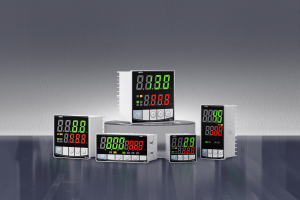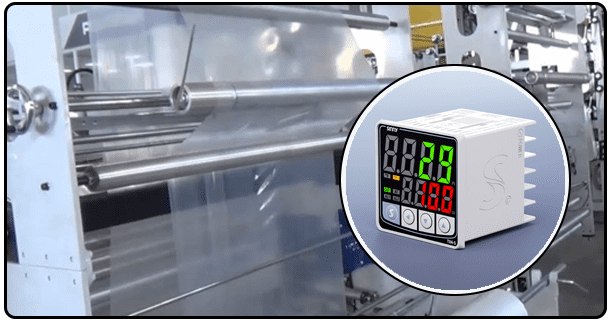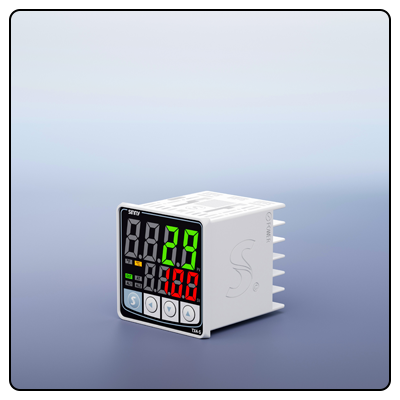Top Benefits of Using Temperature Controllers in Your Operations
Discover the transformative potential of temperature controllers when integrated into your operations, from improving process stability to realizing cost savings - discover all their perks here in our comprehensive overview!
Introduction
Temperature control is of great significance across various industries, from manufacturing to food processing. PID temperature controllers serve a vital purpose by maintaining specific temperatures within systems - they play a pivotal role in maintaining processes as intended by keeping temperatures within desired parameters. This article delves deeper into their benefits for your operations by sharing real world examples and expert insight.
1. Increased Process Stability
Temperature controllers greatly enhance process stability. For instance, pharmaceutical manufacturing relies heavily on precise temperatures in order to achieve chemical reactions with consistent outcomes; one leading pharmaceutical company conducted a case study where temperature controllers reduced variability within their processes leading to more reliable outcomes as a result of using temperature controllers.
Temperature controllers work by continuously monitoring process temperatures and adjusting heating or cooling mechanisms as necessary to keep within their setpoint, to maintain stability within the process and mitigate deviations that might compromise product quality.
2. Increased Efficiency and Productivity
Temperature controllers have the power to boost both efficiency and productivity in food processing facilities, for instance one which reported a 20% increase in production capacity after installing advanced temperature controllers, according to their plant manager who noted how precise control over temperatures reduced downtime and minimized waste.
Studies have demonstrated the value of temperature controllers as they help maximize use of energy and materials while streamlining operations. By maintaining optimal temperatures for machines and processes to function at their highest capacity and reduce time and resources needed to reach desired results.
3. Enhance Product Quality
Accurate temperature regulation has an enormous effect on product quality. In electronics production, semiconductor wafer quality relies heavily on exact temperatures being maintained during fabrication; by employing temperature controllers manufacturers can ensure every wafer meets stringent quality standards and achieve higher returns for their investment.
Science behind it involves maintaining an even temperature throughout production processes in order to achieve consistent physical and chemical properties in final products, an important feature in industries where product quality cannot be compromised.
4. Energy Savings
Optimized temperature control can produce significant energy savings. One study from a large commercial building revealed that installing temperature controllers resulted in 15% energy reduction consumption - thus not only cutting operational costs and contributing to environmental sustainability.
Studies reveal that temperature controllers help save energy consumption by eliminating manual adjustments of heating and cooling settings, thus making more effective use of energy resources and eliminating waste associated with manual temperature regulation.
5. Increased Safety
Precise temperature control improves safety by avoiding overheating and equipment failure, both of which pose threats in chemical processing plants. Temperature controllers detect any deviations and correct them accordingly to help minimize reactions that could potentially turn deadly; further minimizing accidents that might otherwise arise from their misuse.
Temperature controllers are commonly mandated in environments presenting risks, to help ensure compliance with safety standards and protect employees and equipment against potential dangers. These devices help ensure compliance and help safeguard both individuals as well as physical assets against harm from environmental conditions that might pose hazards.
6. Cost Savings
Temperature controllers can result in substantial cost savings for manufacturing companies, with one company reporting over $100,000 saved every year by adding temperature controllers into its operations and using reduced energy usage, lower maintenance expenses, and enhanced process efficiencies as benefits from using temperature controllers.
Financial data from various industries validates temperature controllers as an economical investment. By optimizing processes and cutting waste, temperature controllers help achieve long-term cost-cutting savings that add up quickly.
7. Conclusion
Temperature controllers offer many benefits to businesses and operations alike. From enhanced process stability and energy savings through increased efficiency and product quality enhancement to energy conservation measures that improve safety and cost reduction - temperature control devices offer numerous advantages that will create reliable, efficient, cost-efficient processes within any operations setting. Implementation can result in improved processes.
- Top Applications for Temperature Controllers
- Troubleshooting Tips for Common Temperature Controller Issues | Expert Guide























